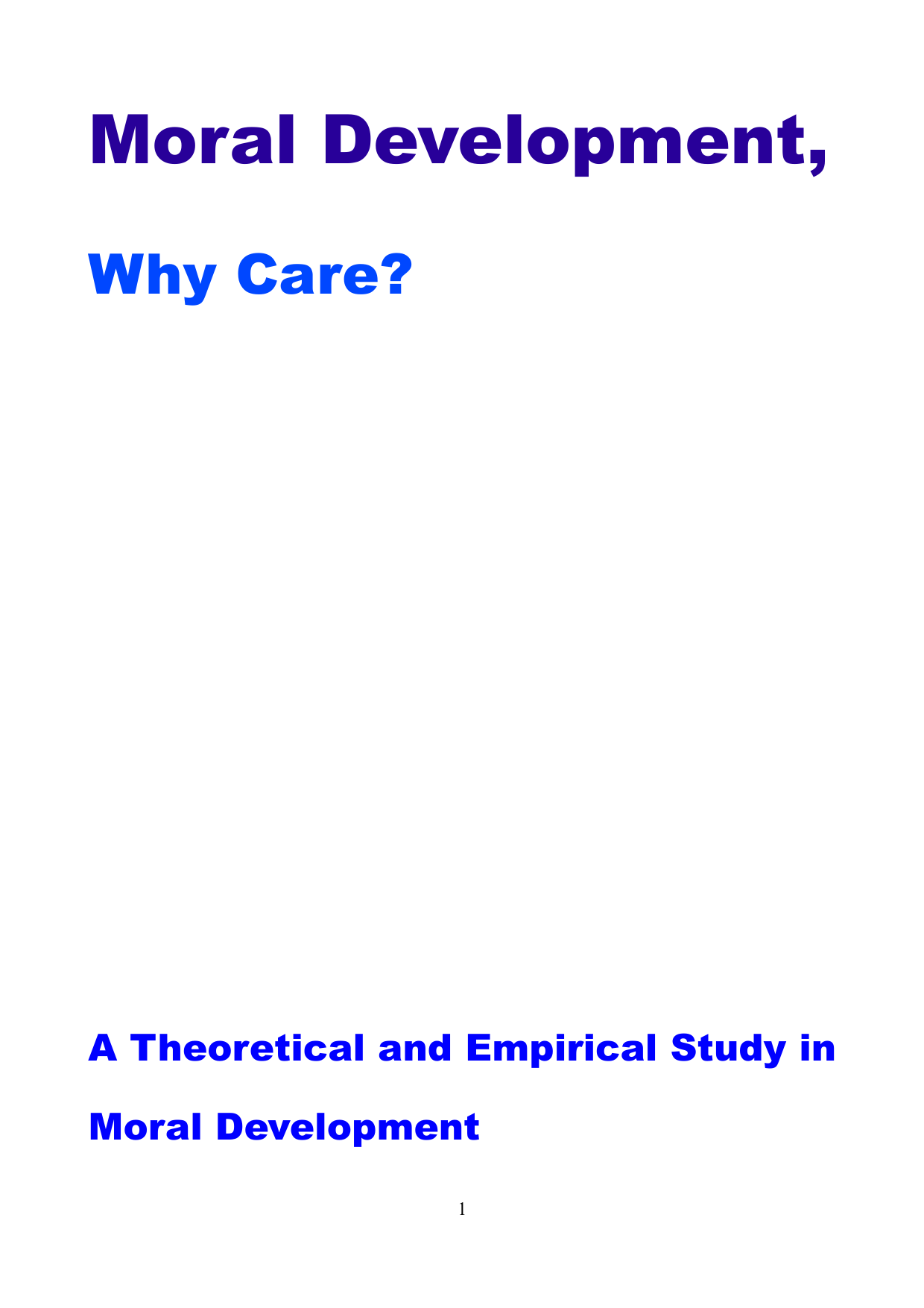
Moral Development, Why Care?: A Theoretical and Empirical Study of Moral Development
Translated title
Moral Development, Why Care?: A Theoretical and Empirical Study of Moral Development
Author
Term
4. term
Education
Publication year
2009
Submitted on
2009-03-02
Pages
80
Abstract
The motivation behind the thesis was to investigate morals as they relate to the ability to treat others nicely, and to gather a greater understanding of moral development in order to identify whether age differences could be found of importance for this development. Initially, a theoretical investigation of different approaches to the understanding of moral development was conducted. Moral development was presented as: a global staged approach (Piaget, Kohlberg); a social-domain model postulating moral, social-conventional, and personal reasoning as coexisting; and an intuitionists post-hoc approach to morals (Haidt). The suggested developmental tracks and the theoretical inconsistencies were investigated by conducting a qualitative investigation, which was then quantified in a statistical analysis (a representative sample) in order to investigate any typical developmental progression. The theoretical approaches were also analyzed philosophically, and the use of Wittgenstein’s philosophical language approach sought to legitimize studying children’s moral development through their reasoning. The empirical study was designed to investigate children's moral judgments (using exclusion to foster moral arguments). The ‘perpetrator effect’ (testing arguments when authority/ peers were excluding) was measured on targets (being excluded on the basis of their gender or immigration status). Two conditions were investigated: one exposure condition where ~20% other ethnicities (bilingual children) were present; and a condition with minimal or no immigrants present ( no bilingual children). The thesis then addressed whether children would be more willing to exclude a child from a dominant group (containing boys and Danes) or children from a week group (containing girls and immigrants). Individual interviews (lasting 10-20 minutes) containing eight scenarios and the gender-typing test (the COAT) were conducted. 307 middle-class children were interviewed from 7 participating schools, with equal numbers of children from three age groups (app. 8, 10 and 12). Expectations from the theoretical discussion of the presented theories, were that younger children would use more moral arguments, and less social conventional arguments, and would be less willing to exclude. Older children were expected to use less moral arguments and more social conventions (e.g. group membership or social traditions), and be more accepting of exclusion. Children using more gender typing were expected to use more social conventional arguments, and be more willing to reject (especially based on gender). After transcribing and coding all interviews, analysis showed no trajectories, gender biases, or willingness to accept teacher perpetrated exclusion. However it was found that children in the exposure condition used more social conventions. It was also found that children using more moral reasoning rejected others less. It was expected that children in the exposure condition (being exposed to different social conventions and experiencing more groups) would use more social conventional arguments, and this expectation was supported. The target group (being either the dominant or weak group) was, as it was expected to be, of importance. It is also of importance to note that children would use more moral judgments when the excluded child was from the weak group than from the strong group, furthermore children used more moral reasoning when reasoning about the immigrant child and more social conventional reasonings for a girl. The overall findings indicate that children using more moral arguments are less willing to exclude. These findings suggest that the less group-focused children are, the more moral arguments they use, signifying that morals come from an individual ability (willing to challenge the group or authority).
Documents
